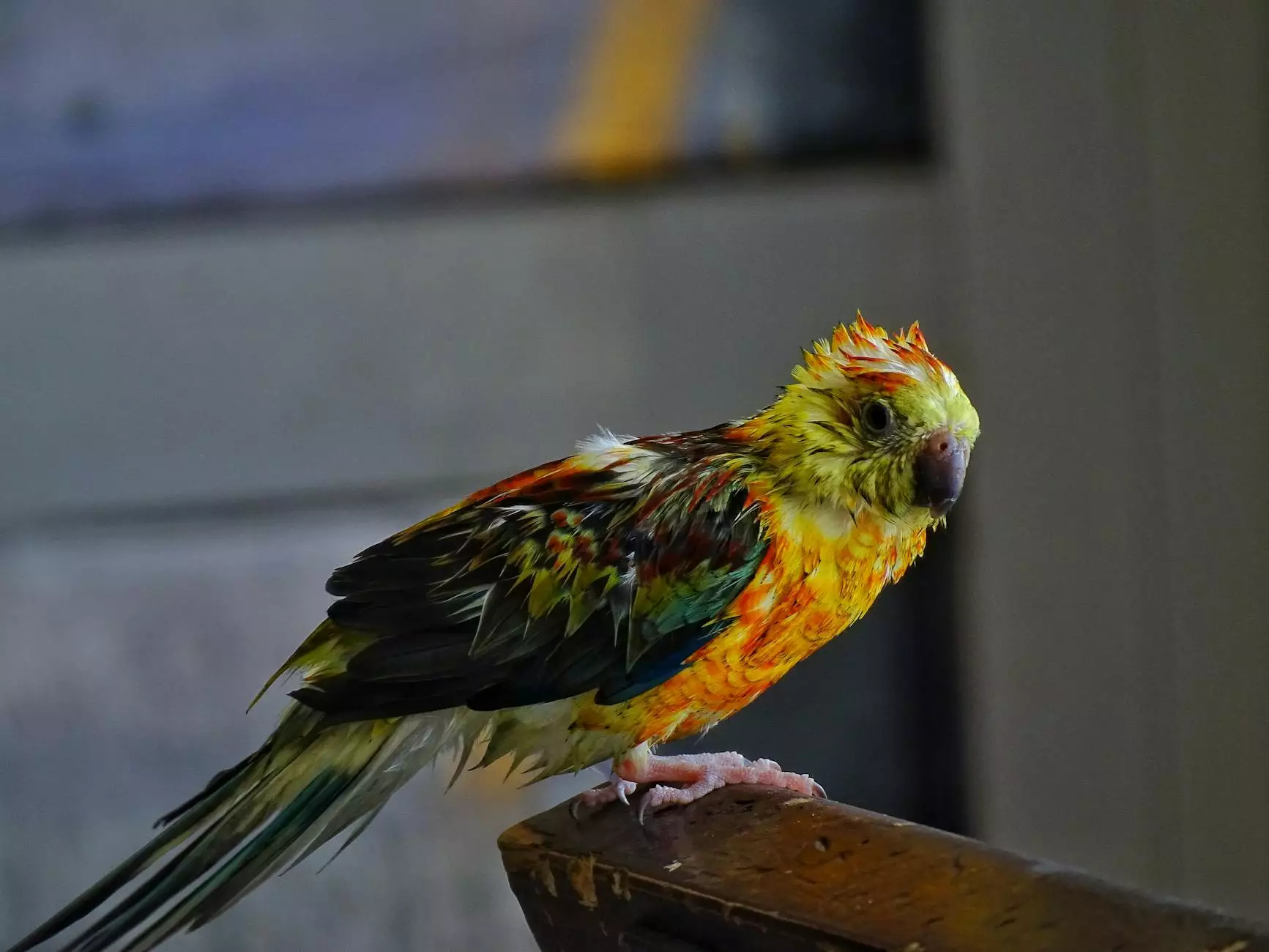The Ultimate Guide to Conure Birds: Your Perfect Pet Companion

Conure birds are becoming increasingly popular among pet owners due to their vibrant colors, playful personalities, and charm. As a niche within the broader pet market, conures offer unique characteristics that not only make them desirable companions but also intriguing additions to any home. In this comprehensive guide, we will explore everything you need to know about conure birds, from their care and keeping to where to find reputable breeders and stores.
Understanding Conure Birds
Conure birds are small to medium-sized parrots that belong to the family Psittacidae. Known for their lively and mischievous temperament, conures come in a spectrum of colors and species. The most common conure species include:
- Sun Conure: Brightly colored with a vibrant yellow and orange plumage.
- Green-cheeked Conure: Smaller with a mix of green, blue, and maroon tones.
- Jenday Conure: Known for their golden yellow body with green wing feathers.
- Yellow-sided Conure: Featuring a blend of yellow, green, and hints of red.
These birds are not only beautiful to look at, but they are also known for their social and friendly demeanor. They bond closely with their owners and are often described as affectionate pets.
The Benefits of Owning a Conure Bird
Owning a conure bird can be tremendously rewarding. Here are some of the main benefits:
- Interactive Companions: Conures are social birds that engage with their owners through play and conversation.
- Smart and Trainable: These birds can learn tricks, commands, and even mimic sounds or words, making them versatile pets.
- Low Maintenance: While they do require care, conures are generally easier to manage compared to larger parrots.
- Unique Personalities: Each conure has its own personality, providing a unique experience for every bird owner.
Caring for Your Conure Bird
To ensure your conure bird thrives and remains healthy, it is crucial to understand their care requirements. Here are some key aspects of conure care:
Diet and Nutrition
A balanced diet is the foundation of a healthy conure. The diet should consist of:
- Pelleted Food: High-quality pellets formulated for parrots are essential.
- Fresh Fruits and Vegetables: Offer a variety of colorful options like apples, carrots, and leafy greens.
- Seeds and Nuts: These should be given in moderation as treats due to their high-fat content.
Housing Requirements
Choosing the right cage is vital. The cage should be:
- Spacious: At least 24”x24”x36” for adequate flying space.
- Safe: Made from non-toxic materials, with no sharp edges.
- Enriched: Include toys, perches, and places to hide to stimulate their natural behaviors.
Socialization and Interaction
Conures thrive on interaction and should be socialized regularly. Spend time with your bird, allowing them to play and explore outside their cage under supervision. Engage with them through:
- Playtime: Use toys to engage their curiosity.
- Training Sessions: Teach them simple commands and tricks.
- Quality Time: Simply talking or singing to your conure fosters a bond.
Health Care for Conure Birds
Regular veterinary check-ups are essential to ensure your conure bird remains in optimal health. Here are some key health tips:
- Annual Vet Visits: Schedule check-ups to prevent common illnesses.
- Grooming: Regularly trim nails and monitor feather condition. Bathing should be routine.
- Watch for Signs of Illness: Be observant for changes in behavior or eating habits.
Where to Get Your Conure Bird
When looking to bring a conure bird into your home, finding a reputable source is crucial. Here are the options available:
Pet Stores
While pet stores can be convenient, ensure they have a good reputation and take proper care of their birds. Ask about the bird's health, breeding, and vaccination history.
Breeders
Choosing a certified breeder is often the best way to get a healthy conure. A good breeder will:
- Provide Documentation: They should have proof of health checks and breeding lineage.
- Encourage Interaction: Spend time socializing with chicks to ensure they are well-adjusted.
- Offer Support: A responsible breeder will be available for questions post-purchase.
Rescue Organizations
Consider adopting from a local bird rescue organization. This not only gives a home to a bird that needs one but also supports animal welfare. Many rescue organizations have conures available for adoption.
Conclusion
In conclusion, conure birds offer a unique experience for pet owners with their colorful personalities and lively interactions. By providing a suitable environment, proper nutrition, and plenty of love and attention, you can ensure a happy and fulfilling life for your new feathered friend. Whether you are considering purchasing from a reputable pet store, professional breeder, or even a rescue organization, make sure to do thorough research so that you are well-prepared to welcome a conure into your home.
Owning a conure can be a delightful journey filled with joy, laughter, and companionship. Armed with the knowledge from this guide, you are well on your way to becoming a responsible and loving conure owner. Embrace the charm of these beautiful birds and enjoy the many adventures that await!









